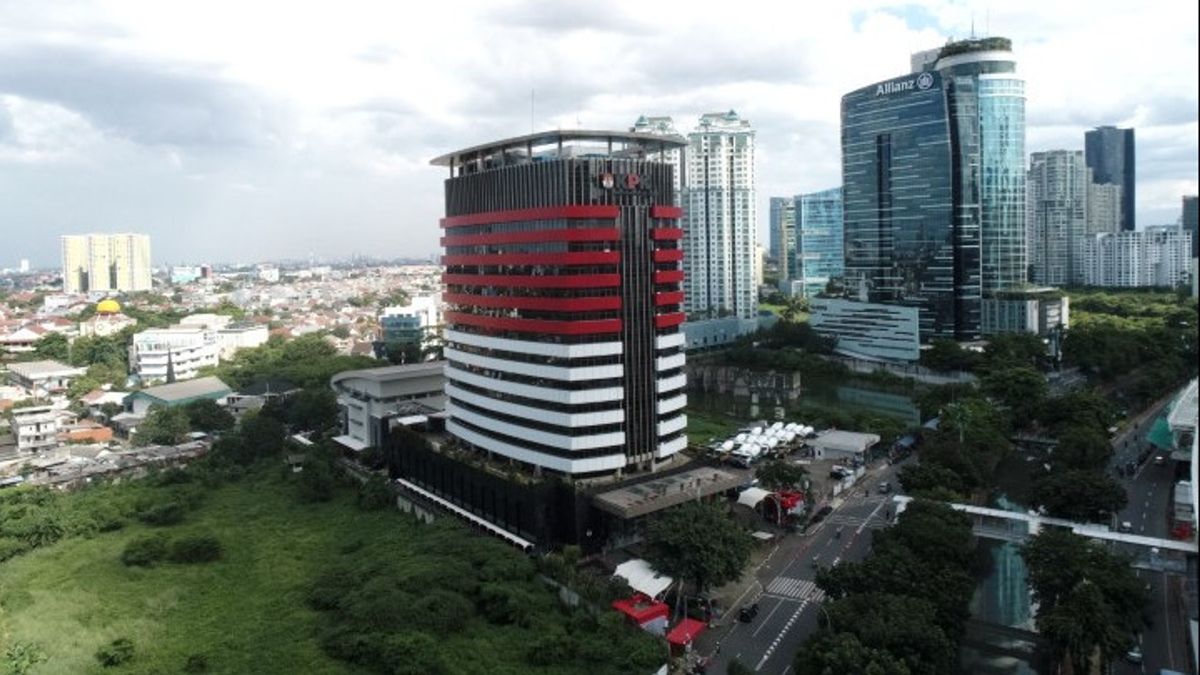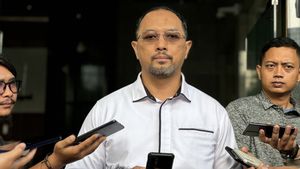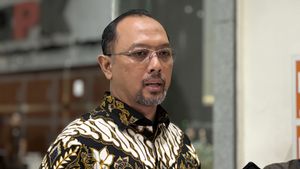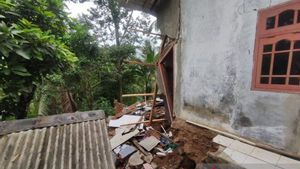JAKARTA - The Corruption Eradication Commission (KPK) is back in the spotlight. Not because this institution managed to catch the fugitive, but because there was a change in the internal organizational structure that made him fat.
This change in organizational structure is based on the Corruption Eradication Commission Regulation (Perkom) Number 7 of 2020 concerning the Organization and Work Procedures of the KPK. Through this regulation, the anti-graft agency added 19 positions and positions that were not listed in Perkom 03/2018.
The 19 new positions and positions are Deputy for Education and Community Participation, Directorate of Educational Networks, Directorate of Socialization and Anti-Corruption Campaigns, Directorate of Community Participation Development, Directorate of Anti-Corruption Education and Training Networks.
Then there is the Secretariat of the Deputy for Education and Community Participation, the Directorate of Anti-Corruption for Business Entities, the Deputy for Coordination and Supervision, the Directorate for Coordination and Supervision of Region IV, the Secretariat for the Deputy for Coordination and Supervision, the Information Management Directorate, the Directorate for Corruption Detection and Analysis, and the Center for Strategic Planning for Eradication. Corruption and Inspectorate.
In addition, the Perkom, which was signed by KPK Chairman Firli Bahuri on November 6 and promulgated on November 11, also regulates the presence of special staff who are directly responsible to the leadership.
Article 75 of Perkom 7/2020 states that this special staff number at most five people with various expertise such as information technology, natural resources and environment, corporate law and transnational crime, management and human resources, economy and business, and / or other expertise according to the needs of the KPK. They will later be appointed and dismissed by the Secretary General.
Furthermore, in this Perkom Firli also removed three positions and positions, namely Deputy for Internal Supervision and Public Complaints, Directorate of Internal Supervision, and the Work Unit for the Anti-Corruption Education Center (ACLC).
Responding to the reshuffle that made the internal structure of the KPK fatter, a number of parties then criticized this new rule. Indonesia Corruption Watch (ICW) researcher Kurnia Ramadhana stated that the Perkom signed by Firli contradicts the KPK Law. According to him, even though the KPK Law has changed, there is no change in Article 26 which regulates the matter of the structure of the institution so that a major overhaul is not necessary.
"It is important to know that Article 26 of Law Number 30 of 2002 concerning the Corruption Eradication Commission is not revised in Law Number 19 of 2019. Of course this means that the fields in the KPK are still as they were," said Kurnia in his written statement to journalists who quoted VOI, Thursday, November 19.
Thus, the existence of a Perkom which added a number of positions in the institution's internal was deemed contrary to the KPK Law and was considered vulnerable to being canceled through a judicial review at the Supreme Court. Moreover, instead of fattening up the internal structure, Kurnia reminded the KPK that it should focus on improving its performance.
In line with Kurnia, former KPK spokesman Febri Diansyah also considered this Perkom at risk of violating Article 26 of the KPK Law because in its regulation, it was obliged to refer to existing verses. He even asked the KPK Supervisory Board to take action in this regard.
"I think Dewas needs to take action including conducting a review of the drafting process. Is it appropriate or not between the Law and Perkom regarding the formation of rules in the KPK," he said.
He hoped that before making this decision, the KPK institution would consider this matter carefully. Because in addition to being contrary to law, the Perkom is considered to be the subject of discussion for other parties.
"If a lot of positions are added, it is feared that someone will say that the KPK will increasingly burden the state finances. Because it needs salaries and allowances of a large amount later. Especially with the discourse on official cars," he said.
"Hopefully the KPK has considered this matter carefully," he added.
Meanwhile, regarding this structural overhaul, Deputy Chairman of the Corruption Eradication Commission (KPK) Nurul Ghufron said this was in accordance with the corruption eradication strategy that the KPK would implement in the future.
"The KPK is now developing corruption eradication using three methods, namely, first, prosecution, second prevention, and thirdly, socialization and campaign education," Ghufron told reporters.
Thus, the addition of 19 new positions and positions in this anti-graft agency was deemed necessary as a form of alignment of the task load and the number of members to make it more ideal in the future. Moreover, the current corruption crime is no longer a personal crime but a systemic one.
"We view that the eradication of corruption can no longer be approached only as a personal crime but as a systemic one that needs to be tackled comprehensively and systemically as well," he concluded.
The English, Chinese, Japanese, Arabic, and French versions are automatically generated by the AI. So there may still be inaccuracies in translating, please always see Indonesian as our main language. (system supported by DigitalSiber.id)









